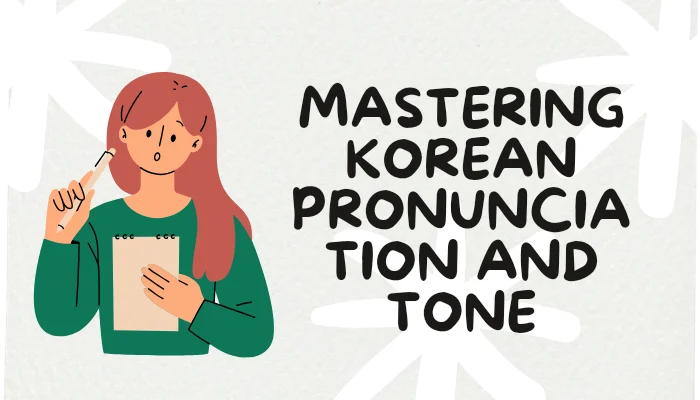As someone who loves to travel and learn new languages, I’ve learned that knowing key Korean phrases is crucial. It makes exploring Korea’s culture and busy streets much easier. Whether you’re heading to Seoul, studying Korean, or just interested in the language, a few important phrases can greatly enhance your experience.
In this article, I’ll show you the most useful Korean phrases. You’ll learn greetings and expressions for everyday life. By the end, you’ll be able to communicate confidently and connect with the friendly people of Korea.
Key Takeaways
- Discover the most essential Korean phrases for effective communication
- Learn the differences between formal and informal greetings in Korean
- Explore time-specific Korean expressions to navigate daily interactions
- Understand the cultural context behind common Korean phrases
- Develop a solid foundation in Korean pronunciation and intonation patterns
Getting Started with Basic Korean Greetings
Starting your journey into Korean culture? Learning basic greetings is key. These polite words show respect and make social interactions smoother. We’ll explore formal and informal greetings, plus time-specific customs to boost your cultural savvy.
Formal vs Informal Korean Greetings
In Korean, knowing when to use formal or informal greetings is important. Formal ones, like “안녕하십니까” (annyeonghaseumnida), show respect and are for elders, bosses, or work settings. Informal greetings, such as “안녕” (annyeong), are for friends, family, or peers.
Time-Specific Korean Greetings
- Good morning: “안녕하세요” (annyeonghaseyo)
- Good afternoon: “안녕하세요” (annyeonghaseyo)
- Good evening: “안녕하세요” (annyeonghaseyo)
Learning these greetings will make a good impression and show you understand Korean culture and etiquette.
Cultural Context of Korean Greetings
Korean culture values hierarchy, respect, and social status a lot. When greeting, think about the person’s age, role, and how they relate to you. This way, you show respect and avoid any offense.
“Respect for elders and social hierarchy is a cornerstone of Korean culture, and this is reflected in the language and etiquette of greetings.”
Understanding these cultural aspects will enrich your travel in Korea. It will also deepen your appreciation for Korean language basics and Korean etiquette and culture.
Essential Korean Phrases for Daily Interactions

Starting your conversational korean journey? Learning key phrases for everyday life boosts your communication skills. Whether you’re ordering at a restaurant or exploring a market, these phrases help you feel confident. Here, we’ll cover a list of basic korean grammar for smooth, fun interactions in Korea.
Ordering Food and Drinks
Ordering food and drinks is a common task. Learn to say “I’d like to order…” (주문하고 싶습니다), “Can I get…” (주문할게요), and “Thank you” (감사합니다). These phrases make dining out easy and enjoyable.
Asking for Directions
Getting lost in new streets can be scary. But, with the right conversational korean phrases, you can find your way. Try asking “Where is…” (어디 있습니까?), “How do I get to…” (어떻게 가나요?), and “Thank you” (감사합니다) for help.
Making Small Talk
Small talk helps you dive into local culture. Use phrases like “How are you?” (어떻게 지내세요?), “Nice to meet you” (만나서 반갑습니다), and “Have a nice day” (좋은 하루 보내세요). They help you connect and learn from others.
Practice is key for korean survival phrases. By using these phrases daily, you’ll become more confident and comfortable in Korea.
Mastering Korean Pronunciation and Tone

Learning Korean is an exciting journey. Mastering pronunciation and tone is key. As an English speaker, you might find Korean sounds different. But with practice, you can get good at these sounds and speak Korean confidently.
Vowel and Consonant Sounds
Korean has many vowels and consonants, each unique. You’ll learn sounds like the smooth “a” and strong “r”. Getting to know these sounds is the first step to speaking Korean well.
Common Pronunciation Mistakes to Avoid
When you start learning Korean, watch out for common mistakes. English speakers often struggle with vowel differences or consonant clusters. Avoiding these mistakes will help you speak clearly.
Sentence Intonation Patterns
Korean sentence structure and intonation are different from English. Learning how Koreans change their pitch and rhythm is important. Paying attention to these details will improve your Korean speaking skills.
FAQ
What are the most essential Korean phrases I should learn?
As a beginner, start with common greetings and polite words. “안녕하세요” (Hello) and “감사합니다” (Thank you) are good to know. Also, learn phrases for everyday things like ordering food and asking for directions.
How can I learn Korean quickly and effectively?
To learn Korean fast, dive into the language as much as you can. Listen to Korean music and watch dramas. Practice speaking with native speakers too.
Start with basic words and phrases. Use apps, classes, and language exchange programs to help you learn faster.
What are some useful Korean expressions for travelers?
Travelers should know “어디에 있습니까?” (Where is…?) and “얼마입니까?” (How much is it?). “도와주세요” (Please help me) and “화장실이 어디에 있습니까?” (Where is the restroom?) are also helpful.
Learning phrases for transportation, shopping, and dining can make your trip easier.
How do I properly pronounce Korean words?
Mastering Korean pronunciation is key. Focus on the unique sounds of Korean vowels and consonants. Be careful not to mix up “r” and “l” sounds.
Work on your intonation and rhythm to sound natural when speaking Korean.
What are the key differences between formal and informal Korean?
Korean has formal and informal speech. Formal, or “jondaemal,” is used with elders and superiors. Informal, or “banmal,” is for friends and family.
Knowing when to use each is important for Korean social etiquette.
